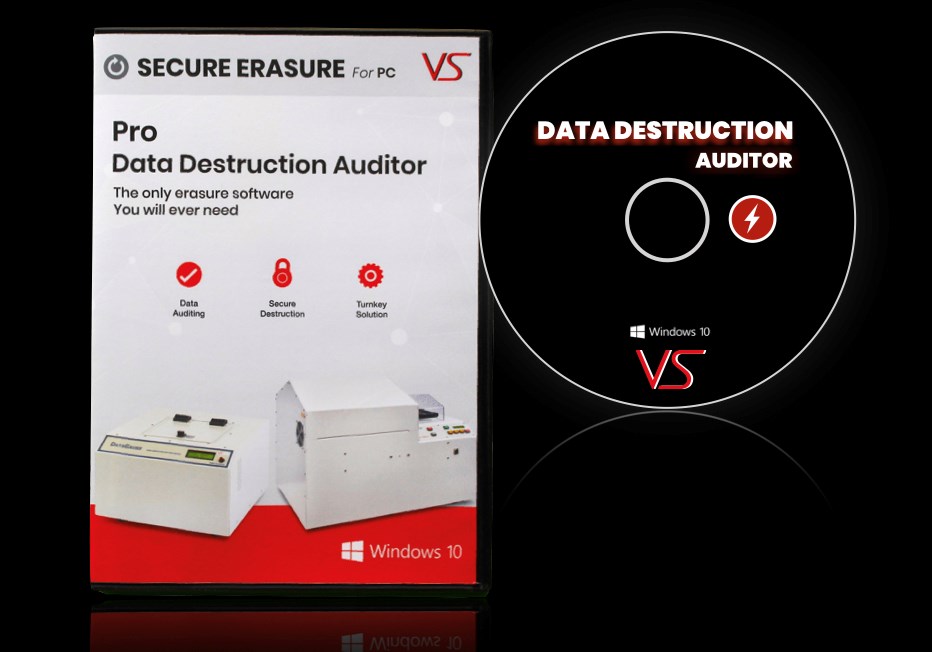How Robust Data Destruction Enhances Your Overall Cyber Security Steps
How Robust Data Destruction Enhances Your Overall Cyber Security Steps
Blog Article
Exploring the Importance of Data Devastation in the Context of Computer System Security Services and Protecting Confidential Data
In an age where information breaches are increasingly usual, the significance of efficient information destruction can not be overstated. What methods can companies apply to enhance their data damage procedures?
Recognizing Data Damage
Data devastation is a vital part of computer safety that includes the irreversible elimination of information from storage gadgets to avoid unauthorized access and prospective information breaches. In a significantly digital landscape, companies deal with enhanced dangers connected with delicate information being improperly accessed or exploited. Effective data damage safeguards against these risks, making sure that personal dataâEUR" such as customer information, intellectual residential property, and economic recordsâEUR" can not be recouped after disposal.
Comprehending the importance of data destruction expands past plain conformity with lawful and regulative frameworks; it is important for maintaining organizational honesty and trust fund. When information is incorrectly managed or inadequately damaged, the effects can be serious, including financial loss, reputational damages, and lawful obligations.

Approaches of Information Obliteration

One common technique is data wiping, which entails overwriting existing data with arbitrary patterns numerous times. This method provides the initial information irretrievable, making it a popular choice for companies seeking to secure confidential information.
An additional approach is degaussing, which uses an effective electromagnetic field to interrupt the magnetic domains on storage space gadgets, efficiently eliminating the information. This technique is specifically effective for magnetic media however is not relevant to solid-state drives.
Physical devastation is one more durable technique, crushing or entailing the shredding of storage space gadgets. This approach assurances that information healing is virtually difficult, making it perfect for highly sensitive details.
Last but not least, security can work as a corresponding approach to data eradication. By securing information before removal, companies can add an extra layer of safety, guaranteeing that even if remnants are recouped, they stay hard to reach without the decryption trick. Each approach must be picked based on the level of information sensitivity and the particular safety and security needs of the organization.
Legal Conformity and Information Safety
Organizations need to browse an intricate landscape of legal demands associated with information safety and security, particularly after implementing techniques of data elimination. Numerous regulations, such as the General Information Defense Law (GDPR) and the Wellness Insurance Coverage Mobility and Responsibility Act (HIPAA), enforce rigorous standards on exactly how organizations must dispose and manage of delicate information. Failure to adhere to these guidelines can cause significant legal repercussions, consisting of considerable penalties and reputational damage.
Information destruction procedures have to be diligently recorded to show conformity with suitable laws and criteria. This paperwork not just functions as evidence of adherence to lawful commitments but likewise shows a dedication to protecting delicate info. Organizations should likewise establish clear plans concerning data retention and devastation timelines, guaranteeing that information is not held longer than necessary.

Furthermore, regular audits and evaluations of information destruction methods are essential to keep conformity and adapt to evolving legal structures (data destruction). By proactively resolving lawful demands, organizations can alleviate threats connected with data breaches and show their dedication to information protection. Inevitably, prioritizing lawful compliance in data devastation procedures is not just a governing obligation, yet an essential element of a robust data security strategy
Influence on Company Track Record
The track record of a company can be dramatically impacted by its technique to data destruction and monitoring. In today's digital landscape, where data violations can take place anytime, find out here now the failing to appropriately take care of delicate details can bring about severe effects. Organizations that improperly manage data destruction risk exposing private client details, which not just breaches privacy laws but also erodes trust fund among clients and stakeholders.
A damaged credibility can lead to lowered client commitment, as clients end up being hesitant to engage with an organization that has actually demonstrated carelessness in protecting their information. Furthermore, adverse attention bordering an information breach can have a long lasting result, as possible clients may be deterred by the regarded lack of protection. This can result in a direct decline in income and market share.
In addition, services that prioritize data devastation as component of their security strategy can enhance their online reputation by showcasing their dedication to securing sensitive details. By embracing stringent data monitoring techniques, organizations can not only minimize dangers but also place themselves as credible entities in their particular sectors, consequently reinforcing their general brand name picture.

Best Practices for Secure Disposal
Implementing ideal methods for safe and secure disposal of information is important for mitigating threats related to information violations and making certain conformity blog with personal privacy laws. Organizations must embrace a comprehensive information disposal policy that details procedures for both physical and electronic information destruction.
For physical information storage gadgets, such as hard disks, shredding or degaussing is suggested to stop information recuperation. Furthermore, companies ought to keep a chain of custodianship documentation during the disposal procedure, guaranteeing liability and traceability of disposed items.
For digital information, making use of software application that sticks to industry criteria for information wiping is crucial. This software application needs to overwrite existing data several times, making recovery essentially difficult. It is also essential to confirm the performance of the data destruction process with audits or third-party analyses.
Training employees on protected disposal techniques includes an additional layer of safety and security, as human error can commonly bring about data exposure. Frequently upgrading and reviewing disposal policies ensures alignment with developing guidelines and technical improvements. By carrying out these ideal methods, companies can considerably decrease the risk of unauthorized information accessibility and improve their overall data defense method.
Final Thought
In conclusion, information damage is an essential element of computer safety solutions that makes certain the defense of private information from unapproved accessibility. Applying effective methods of information obliteration, sticking to legal conformity, and acknowledging the effect on organization reputation are vital components of a comprehensive information protection technique. By adopting finest practices for safe and secure disposal, organizations can foster trust with customers and secure sensitive information, eventually adding to a much more protected electronic landscape.
In an page age where data violations are increasingly usual, the importance of effective information destruction can not be overemphasized.Data damage is a vital component of computer system security that includes the permanent removal of data from storage space devices to stop unauthorized gain access to and possible information breaches. Organizations must also develop clear plans concerning information retention and destruction timelines, making sure that information is not held longer than required.
By proactively resolving legal demands, companies can mitigate dangers linked with data violations and show their commitment to data safety (data destruction). Ultimately, prioritizing legal conformity in information destruction processes is not simply a governing obligation, however a basic facet of a robust information safety strategy
Report this page